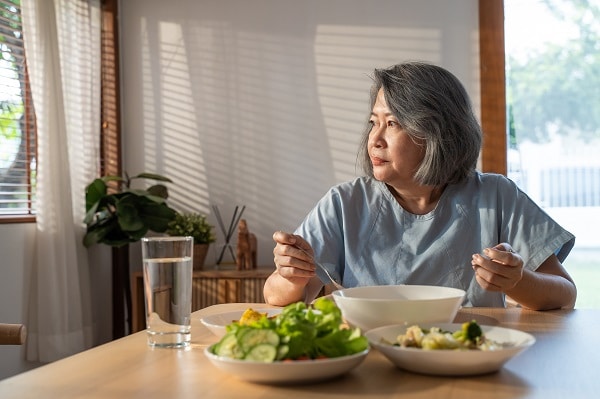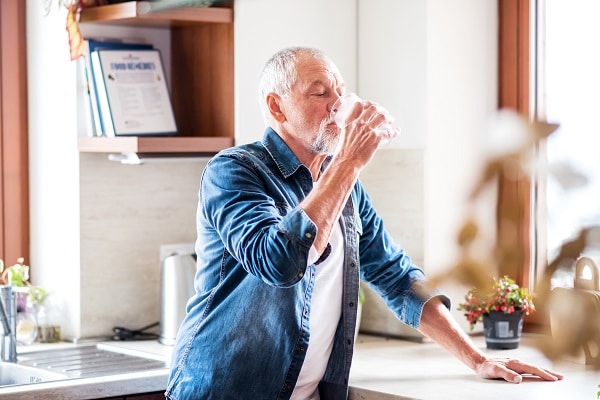As you grow older, your body starts to change. You may notice that you’re having more trouble maintaining a healthy weight or that it’s challenging to maintain the same energy levels you had in your twenties. It’s essential to make sure that we’re eating the right foods. It’s also crucial to make sure that you’re maintaining your weight as well as possible because losing or gaining too much can take a toll on your body. One way to combat these changes is by making sure you’re eating right for your age and stage of life. Here are some dietary habits to consider when getting older.
Low Fat Dairy
You could eat full-fat dairy without too many consequences when you’re younger. But as you age, your body starts to retain less water. Full-fat dairy contains high amounts of saturated fat and cholesterol and can be very difficult for your heart to process. Consume low-fat or non-fat dairy as a replacement. This will help lower your cholesterol and fat intake, and it can even help you lose weight. You can also try adding in more low-fat dairy throughout the day; even having a bowl of low-fat yogurt with fruit and nuts for breakfast will help you lose weight and boost your metabolism.
Frequent Meals
When you’re young, it’s easy to eat only three meals a day. But as you get older, it may become harder to maintain your energy levels throughout the day, and you may notice that it’s much easier for you to snack than it used to be. Make sure you’re eating well-balanced meals at regular intervals during the day; if your schedule doesn’t allow three meals a day, try splitting up your calories into five or six smaller meals instead.
More Whole Grains
Whole grains are much better for you when compared to processed grains and may help reduce the risk of developing a variety of diseases. You’ll want to replace refined grain foods with whole-grain alternatives so that you can avoid getting large amounts of calories from carbs and improve the quality of your diet. Whole-grain bread, pasta, and brown or wild rice are all great additions to your diet as you get older.
Reduce Sodium
Your body naturally starts putting up more of a fight as it gets older. It can be harder for your body to combat diseases and illnesses now that you’re getting on in years; one way to help mitigate this change is to lower the amount of sodium in your diet. Watch out for high amounts of sodium in canned foods, processed foods, and even in some seasonings; make sure you’re substituting salt with spices or herbs instead. Sodium can make your blood more acidic, and it can also contribute to weight gain.
Reduce Calories
The same changes that occur as we get older mean that our bodies now require fewer calories than they used to need. You may notice that you’re not as hungry as often as you were when you were younger; this means that you won’t need to eat as many calories. Make sure you’re getting the portion sizes right and that you’re not overindulging; one way to make sure you don’t overeat is by eating smaller meals more often.
More Veggies
You can get a lot of nutrients from veggies, and they’re very good at keeping you feeling full. You must eat vegetables regularly; not only do they improve the way your body looks, but they help you maintain healthy digestive systems, prevent many types of cancer, and even help with eye health. You don’t have to limit yourself to just salads; try putting some broccoli on your pizza or into your pasta.
More Water
As you get older, your kidneys start to lose some of their ability to regulate water. This means that your body may end up retaining more fluids than it needs; this can make you feel bloated and increase the risk of becoming constipated. Drink plenty of water each day; having 8-12 glasses of water a day is the best way to make sure you’re properly hydrated. Water also helps keep your skin clear, which is very important when you’re in that stage of life.
Reduce Processed Foods
When you’re young, you probably don’t care about what kind of things are in your food, as long as it tastes good. But when you get older, eating too much processed food can cause various other problems for you, including inflammation and a higher risk of developing heart disease. Make sure you’re eating your veggies instead of processed ones, and try to buy organic when possible so that you know what’s in your food.
Reduce Alcohol
When you’re younger, being social means being able to have a few drinks from time to time. But as you get older, your body becomes more vulnerable to the negative effects of alcohol. Excessive drinking can lead to problems with your liver and intestines, and it’s also harder for your body to break down alcohol as you age. Alcohol also tends to dehydrate you, which can cause your skin to age prematurely. If you’re going to drink, do so in moderation; no more than one or two drinks a day. Try to limit yourself to one or two drinks a day, and avoid heavy drinking during the week.
Conclusion
As you get older, you must change your diet to match your needs. It’s important to remember that you can always eat a few treats every once in a while, but make sure this is the exception and not the rule! By following the advice in the article, you can help your body fight off disease, improve digestion, and generally help you feel better.








